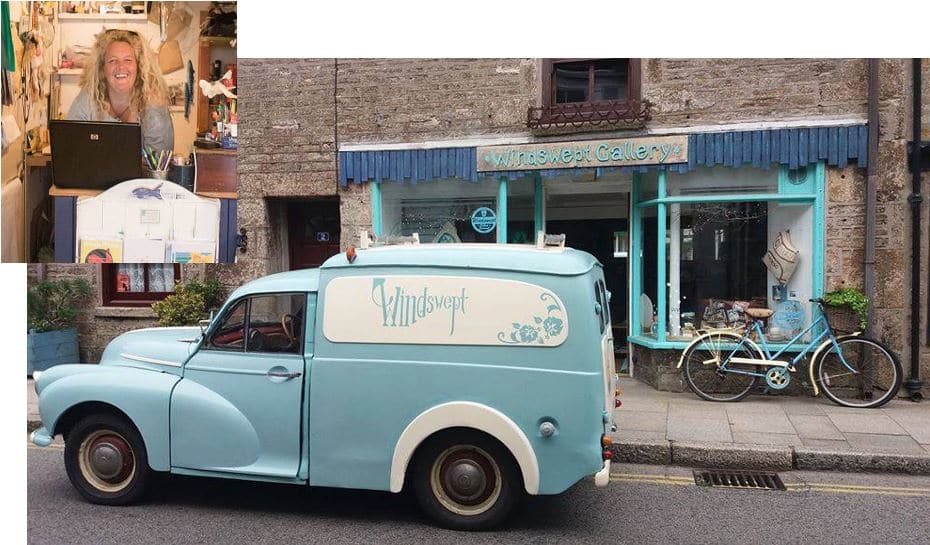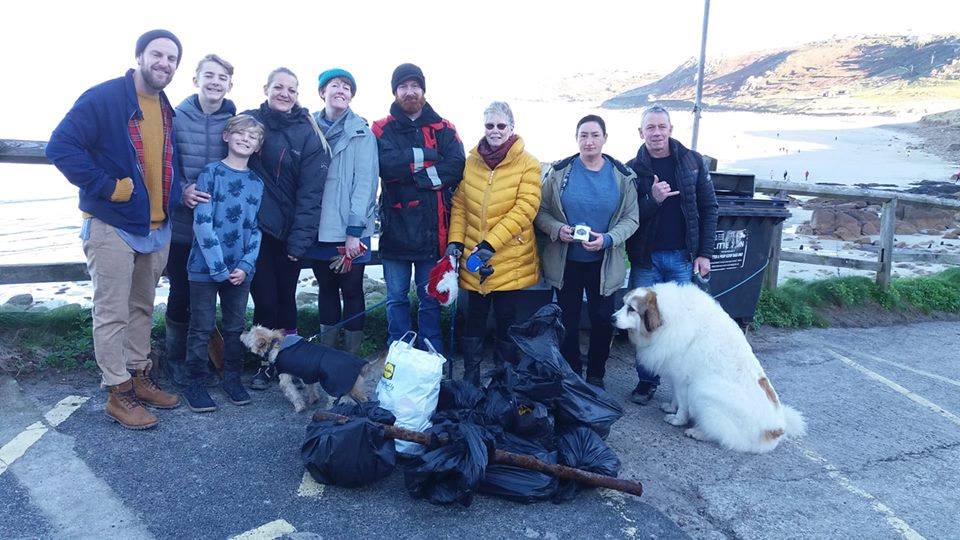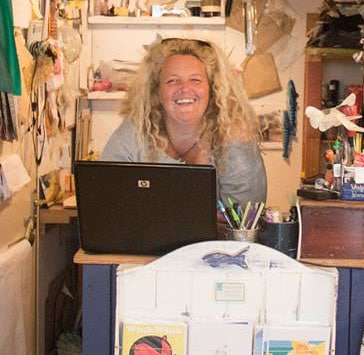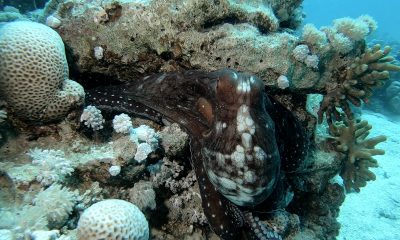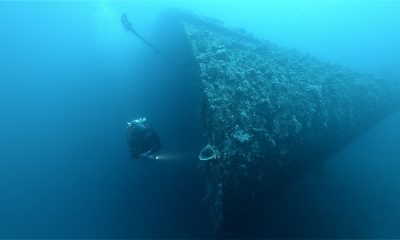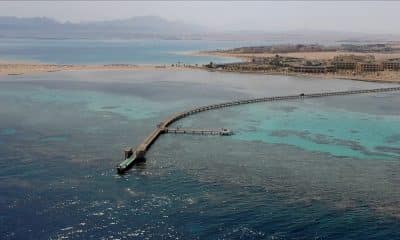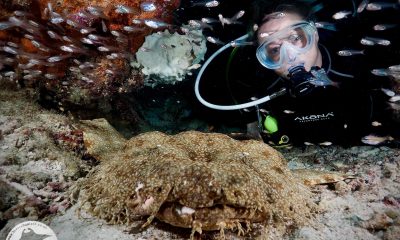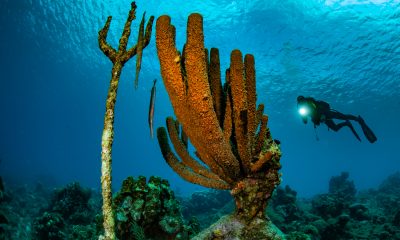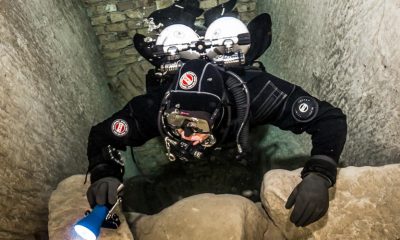Marine Life & Conservation
Proud of my local town, St. Just, Penwith
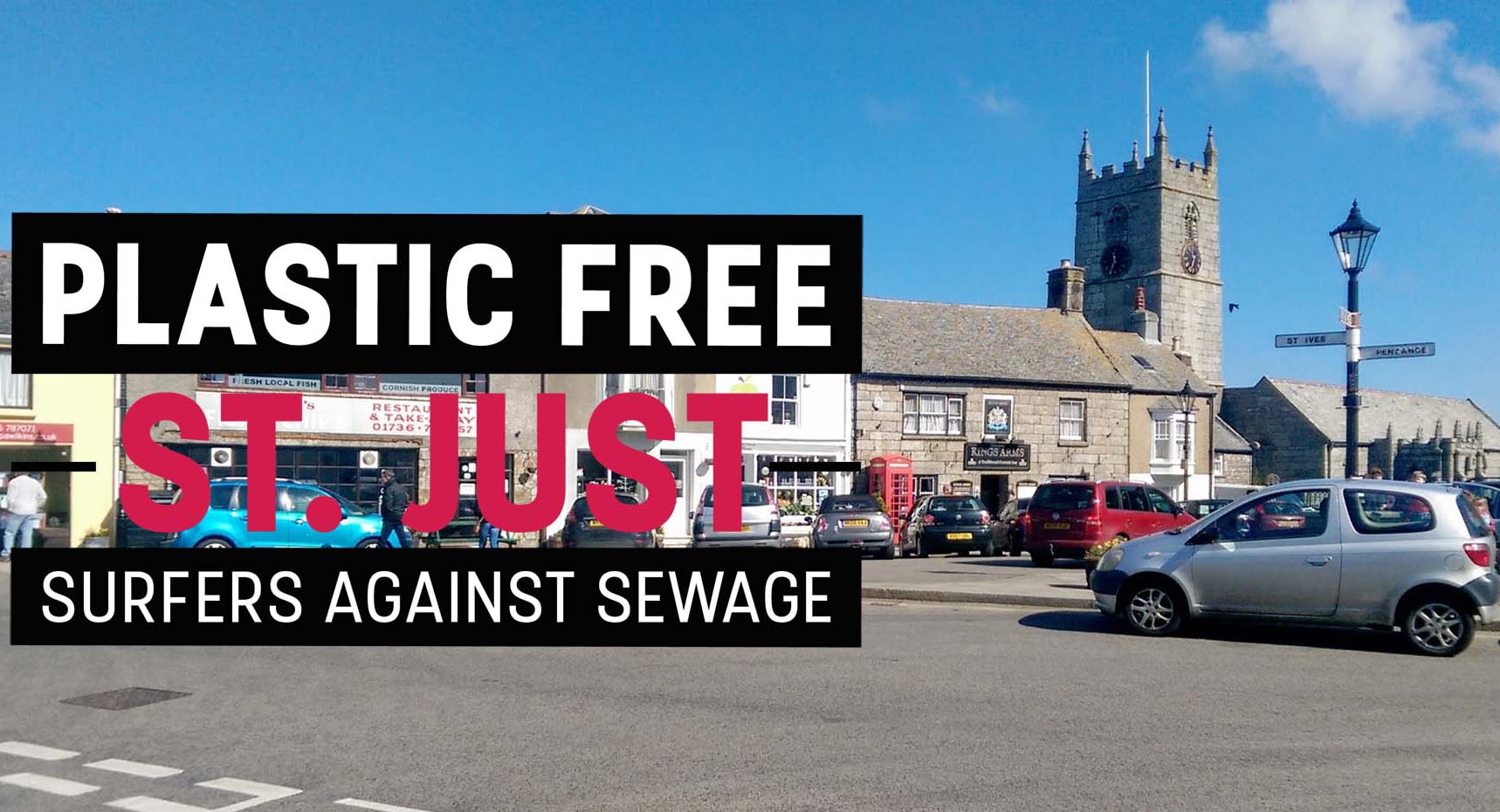
St. Just in West Penwith is not a true coastal town as it lies a few miles inland. But being Cornish, wherever you are, the sea is a great influence in our daily lives. It gives us our weather, our culture, our work place and our great sense of well being. The sea inspires our leisure time, our art and encourages our health. Our beautiful north and south coasts are a wondrous sight and change their mood throughout the year from serene splendour to uncontrollable rage. They are full of an undefinable energy which energises the human soul.
St. Just cares about the sea and it cares about the environment. That is why it recently, in association with Surfers Against Sewage (SAS), became a plastic free town. I’m sure that very few of us are happy with the way our environments are being polluted and probably often complain about it. Well here is the answer. Just get up and do something.
A driving force behind Plastic Free St.Just is Allie Scott, owner of Windswept Gallery. I asked her how this all came about.
Jeff: Hi Allie. Many congratulations to you and St.Just on becoming a plastic free town. Can you tell me what exactly this means?
Allie: Thanks… Basically, in short, this means that as a town we have made a commitment to limiting the amounts, and if possible eradicating, the use of single use plastics. This goes for businesses, local governance, schools, community venues and groups as well as local residents.
Jeff: Is this status recognised nationally by any governing body such as central government or local councils?
Allie: It is. It’s all part of a Government acknowledged scheme, started by SAS, where local Councils across the country acknowledge this as a standard to be achieved in a bid to begin to tackling the problems that single use plastics present. If you see a business displaying the Plastic Free Champion sign, you can be assured that they are taking steps to minimise their consumption and supply of single use plastics.
Jeff: What percentage of the St.Just population and businesses needed to support this to make it a true plastic free town?
Allie: The amount required varies per population, From the 2011 census, St.Just had a population of 5,000, but this has grown since. We had to gain the support of at least six businesses and we are at present at 24 and still growing. Also half of its community spaces, and a third of its schools (we have all three). We have more than this and people are still signing up to join in. This will never stop growing… any business that wants help and advice as to how it can achieve the status is guided through the process and helped in any way possible. This is a long term process… Rome wasn’t made plastic free in a day.
Jeff: What made you decide to do this?
Allie: As a business we have been plastic free for nigh on 25 years; I have never liked to think that something we have produced could and would have a negative impact on the planet. When the scheme came about I asked around the town and there seemed such great and positive support for it so I thought “why not”… It’s great to think that the ethos that our gallery has had for all these years has now been shared with so many. Also as we surf locally and beachcomb most days for materials for our creations we definitely have seen first hand the rise of plastics washing up on our shores. When you are faced with it like that, and see marine animals and birds washed up and harmed by it, it’s hard not to want to do more.
Jeff: Have you always been aware of environmental issues or is this relatively new found with the plastic contaminations?
Allie: No it’s definitely not a new thing for us, Before we moved here we were Environmental Contractors specialising in inner city nature areas and conservation, using traditional skills to manage the environment, so it’s been something we have done for about 30+ years.
Jeff: Have you had full support from the entire community of St.Just or have there been local objections and barriers?
Allie: There have been no objections or barriers but there are still a few people not joined up and that’s fine… they will get there in the end. On the whole though the support has been fantastic and 90% of people and businesses are well onboard, but most importantly the young are involved via schools and youth groups. They then in turn influence their families to hopefully make a few more better informed choices.
Jeff: You mentioned how schools and youth groups have really got behind the project and are supporting it fully. Can you tell me more about this?
Allie: Well all of our schools have signed up to be Plastic Free Schools and part of this, apart from them just cutting down on their own plastic consumption, is that they get involved with writing to Local and Central Government and large businesses requesting that they too start to do something about the amount of plastics there are out there and maybe they could start to develop an alternative that won’t do the damage that plastics do. Also local cub/scout/brownie/guide groups have joined in with beach cleans and are joining in with the pledge to cut plastics, and as soon as they all start up again I shall be approaching the local surf clubs to do the same .
Jeff: Living all my life in and around the sea, I personally have been witness to the insipid build up of plastic waste in our oceans and shores since I began diving over forty five years ago. When did you first fully become aware of how serious the problem was and was there a defining moment?
Allie: I’m not sure there ever was a ‘light bulb’ moment, but there was a definite time when we realised whilst we were out there collecting driftwood for our furniture making we were suddenly picking up more plastics than wood… That was a tad depressing. When we first started about 20 years ago, you would find the odd piece and you would think…oh that’s interesting…that’s come all the way from, say, China…. but then you start to realise that it’s getting more and more and it’s no longer the odd piece. There has also been a rise in dead and injured marine life… and that’s never a nice thing to find.
Jeff: Are there any other towns or cities in Cornwall who are following your lead or have gone before you?
Allie: Well Penzance was the official first Plastic Free Community. But there are many, many more, in fact SAS had to change the campaign from Coastlines to Communities as so many inland towns wished to sign up. There are now 444 (both accredited and working towards accreditation) official Plastic Free Communities all over the country…. we were about 25th I think.
Jeff: Do you think becoming Plastic Free has changed or added value to St Just ?
Allie: I’m not sure… it has brought us together for a common goal whereas before we were a town with many individual businesses, all doing their own thing… but now people are sharing their ideas and suppliers and in some instances bulk buying together, so that’s really great to see. St Just has always been a tight community and now it’s one that is proud of what it has achieved. We are very much ‘living on the edge’ here… both figuratively and literally, so that tends to unite you in ways other places probably don’t understand. I also like to think that maybe visitors will be encouraged to visit safe in the knowledge that we are a town that cares for its local environment as well as the wider world, so I think that can only be for the good.
Jeff: What’s the next stage?
Allie: I would love to get the bigger companies in my area signed up… I’m currently working with our local Co-Op in a bid to get them more plastic aware. We also have a large pasty producer, but to be fair, they aren’t too bad, but there are still a few steps they could take. Other than that, its more beach cleans, more businesses signing up and more raising of awareness to the problem. We shall carry on producing our wares from reclaimed, recycled and sustainable materials, wrapping in paper, and treading as lightly as possible, hopefully with the odd surf thrown in.
Jeff: What advice can you give to someone who wants to go plastic free ?
Allie: Do it! Everyone thinks that someone should do something about this problem… well guess what… that someone starts with you. If you, even on your own, start to look at the choices you make everyday then that’s a great start… But do get others involved… maybe become a community leader for the Plastic Free Communities Campaign (just go on the SAS website for details). Ask your friends, colleagues, club members, school mates to do it with you. I used to get quite down about the problem, but then as I decided to get the community involved I was very heartened by how many other businesses were trying to do their bit too. It’s not hard and it can be fun. People used to say to me… what’s the point? What difference can I alone make? Well, if 1 million people stop using take away coffee cups and use a keep cup, then that’s 1 million less cups in landfill… it soon adds up. We don’t have endless time to sort out this problem… we have to start now and stop adding to the disaster that is out there and of our making in the first place. Then, and only then, will future generations have a chance.
Jeff: Thanks Allie. Please do keep me informed about events and beach clean-ups.
Allie: Thanks for asking and being interested in what we do, and feel free to join us for the next beach clean… details on our Facebook pages…Windswept Gallery or Plastic Free St Just.
Marine Life & Conservation
Leading UK-based shark conservation charity, the Shark Trust, is delighted to announce tour operator Diverse Travel as a Corporate Patron

 Corporate Patrons provide a valuable boost to the work of The Shark Trust. The Trust team works globally to safeguard the future of sharks, and their close cousins, the skates and rays, engaging with a global network of scientists, policymakers, conservation professionals, businesses and supporters to further shark conservation.
Corporate Patrons provide a valuable boost to the work of The Shark Trust. The Trust team works globally to safeguard the future of sharks, and their close cousins, the skates and rays, engaging with a global network of scientists, policymakers, conservation professionals, businesses and supporters to further shark conservation.
Specialist tour operator Diverse Travel has operated since 2014 and is committed to offering its guests high quality, sustainable scuba diving holidays worldwide. Working together with the Shark Trust will enable both organisations to widen engagement and encourage divers and snorkellers to actively get involved in shark conservation.
“Sharks are truly at the heart of every diver and at Diverse Travel, we absolutely share that passion. There is nothing like seeing a shark in the wild – it’s a moment that stays with you forever!” says Holly Bredin, Sales & Marketing Manager, Diverse Travel.
“We’re delighted to celebrate our 10th year of business by becoming a Corporate Patron of the Shark Trust. This is an exciting partnership for Diverse and our guests. We will be donating on behalf of every person who books a holiday with us to contribute towards their vital shark conservation initiatives around the world. We will also be working together with the Trust to inspire divers, snorkellers and other travellers to take an active role – at home and abroad – in citizen science projects and other activities.”
Paul Cox, CEO of The Shark Trust, said:
“It’s an exciting partnership and we’re thrilled to be working with Diverse Travel to enable more divers and travellers to get involved with sharks and shark conservation. Sharks face considerable conservation challenges but, through collaboration and collective action, we can secure a brighter future for sharks and their ocean home. This new partnership takes us one more valuable step towards that goal.”
For more information about the Shark Trust visit their website here.
For more about Diverse Travel click here.
Marine Life & Conservation
Shark Trust Asks Divers to help with Shark Sightings this Global Citizen Science Month

 Whether you are stuck for ideas of what to do with the kids or are off on the dive trip of your dreams. You can get involved in Citizen Science Month and help the Shark Trust by providing vital data about sharks are rays both close to home and further afield.
Whether you are stuck for ideas of what to do with the kids or are off on the dive trip of your dreams. You can get involved in Citizen Science Month and help the Shark Trust by providing vital data about sharks are rays both close to home and further afield.
In addition to reporting the sharks and rays you see on your dives, the eggcases you find on the beach, the Shark Trust is looking for some specific data from divers who are asked to report any Oceanic Whitetip and Basking Sharks.
Oceanic Whitetip Sharks
The Shark Trust are looking specifically for Oceanic Whitetip Shark sightings over the coming weeks and months. So, if you are diving anywhere in the world, please report your sightings via the website or app.
Website: https://recording.sharktrust.org/
App: Search The Shark Trust in your app store
The Oceanic Whitetip. Known for their incredibly long dorsal and pectoral fins, this species was once the most abundant oceanic-pelagic species of shark on the planet.
Large and stocky, they are grey or brown above, and white below and famous for their huge rounded first dorsal fin and paddle-like pectoral fins. The fins also highly prized within the shark fin trade. Whilst they are mostly solitary, Oceanic Whitetips do occasionally hunt in groups.
An inquisitive species, they were easy prey for fisheries. Combined with their low reproductive rate, they were inevitably at high risk of population depletion. And declines of up to 99% have been reported in certain sea areas. They are listed as Critically Endangered on the IUCN Redlist (2019).
Conservation efforts to discourage further declines include listing on CITES Appendix II and CMS Appendix I. They’re also the only species prohibited from take by all the Tuna RFMOs (Regional Fisheries Management Organisations). However, these measures do not mean that Oceanic Whitetips are not still caught – whether targeted or as bycatch – in some parts of the world. With populations declining at such a high rate, effective implementation of management measures is essential to ensure that the species can recover.
If you are lucky enough to get an image of an Oceanic Whitetip and you record your sighting on the Shark Trust app or website YOU CAN WIN! All images submitted with sightings, that also give consent to use in conservation messaging, will be in with a chance to win an Oceanic Whitetip T-shirt and mug. The competition will run until the end of “Shark Month” in July – so keep those sightings (and images) coming in.
Basking Sharks
Basking Shark (Cetorhinus maximus) season is upon us, and the Shark Trust is asking everyone to keep an eye out for these majestic giants over the summer months. If you see any, you can record your sighting to the Basking Shark Sightings database.
Each year, these mighty fish return to British waters to feed on plankton. You may see one, (or a few if you’re really lucky) from around April-October. They can be seen feeding at the surface of the water, where they look like they’re basking in the sun. Thus, their name!
Sighting hotspots around the British Isles include southwest England, Isle of Man, north coast of Ireland, and western Scotland. The Sea of the Hebrides is the most prolific sightings area in Scotland, but they have been spotted all around the coast and have even ventured into some of the sea lochs. The Shark Trust has received thousands of sightings since the Basking Shark project began, but more data is needed to truly understand what is going on with population numbers and distribution. You can help by recording your sightings this summer.
Great Eggcase Hunt
The Shark Trust has an Easter Egg Hunt with a difference for you to try. Take part in the Great Eggcase Hunt and get involved with a big citizen science project that helps shark, ray and skate conservation. And it’s an enjoyable activity for all the family.
The Shark Trust also want snorkellers and divers to record their underwater eggcase findings. Underwater records help pinpoint exactly where sharks and skates are laying their eggs and can help link to beach records. Learning the depth and substrate that they lay on also helps better understand the species.
Find out more: https://www.sharktrust.org/great-eggcase-hunt
Whether you are diving, snorkelling or exploring on the beach you can take part in Citizen Science Month and get actively involved in shark and ray conservation. Find out more: www.sharktrust.org
-

 News3 months ago
News3 months agoHone your underwater photography skills with Alphamarine Photography at Red Sea Diving Safari in March
-

 News2 months ago
News2 months agoCapturing Critters in Lembeh Underwater Photography Workshop 2024: Event Roundup
-

 Marine Life & Conservation Blogs2 months ago
Marine Life & Conservation Blogs2 months agoCreature Feature: Swell Sharks
-

 Blogs1 month ago
Blogs1 month agoMurex Resorts: Passport to Paradise!
-

 Gear News3 months ago
Gear News3 months agoBare X-Mission Drysuit: Ideal for Both Technical and Recreational Divers
-

 Blogs2 months ago
Blogs2 months agoDiver Discovering Whale Skeletons Beneath Ice Judged World’s Best Underwater Photograph
-

 Gear Reviews2 months ago
Gear Reviews2 months agoGear Review: Oceanic+ Dive Housing for iPhone
-
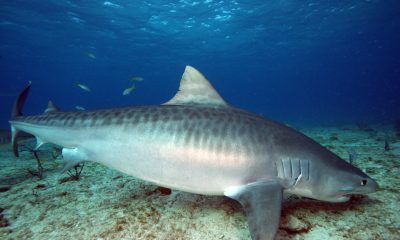
 Blogs3 months ago
Blogs3 months agoThe Thrilling Encounter with Tiger Sharks at Beqa Lagoon’s ‘The Colosseum’ with Coral Coast Divers


